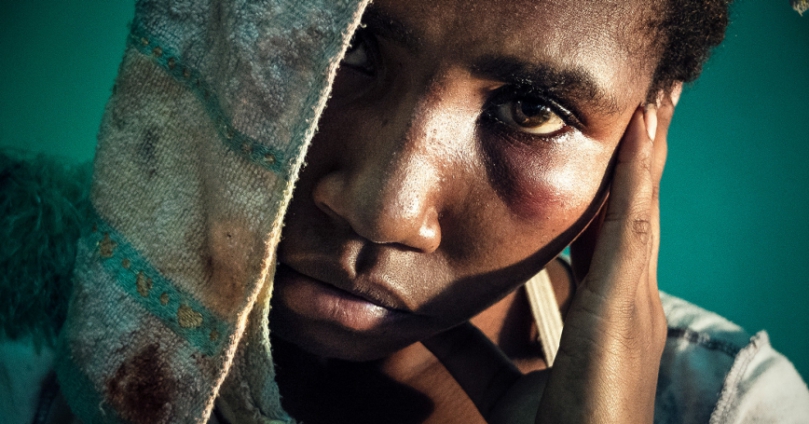The Local Economies Tracker survey has revealed that localities witnessed an increase in crime during the country’s Covid-19 lockdown period.
The survey indicated that about three out of ten communities, representing 34.1 per cent experienced a rise in crime, such as theft and burglary.
The Local Economies Tracker survey was conducted by the Ghana Statistical Service (GSS), in collaboration with the United Nations Development Programme (UNDP), in 2,770 communities and localities in the 16 regions of Ghana.
The Government Statistician, Professor Samuel Kobina Annim presenting the finding of the report, said the rise in crime was followed by an increase in domestic violence, representing 3.7 per cent and assaults, representing 3.1 per cent in communities.
He said the Covid-19 restrictions also affected businesses in the local communities, with seven to eight out of ten businesses experiencing a reduction in production, representing 71.7 per cent and sales, representing 89.7 per cent.
“The businesses also witnessed a reduction in labour supply, representing 36.0 per cent and prices of goods and cost of credit increased,” he added.
He said the localities in border districts had relatively more structured instituted to support the pandemic.
The Government Statistician said according to the residents in the communities COVID-19 might contribute to the increasing inequality in the country.
He said most localities in the border districts and others were uncertain of the economic recovery from the pandemic with about 45 per cent of the localities in lockdown districts, indicating that the recovery would occur in about a year.
He said, however, assistance from non-state actors such as churches and philanthropists provided significant support in complementing government’s efforts to lessen the impact of the pandemic on communities.
“Covid-19 has undoubtedly had a devastating impact on households, businesses, and the local economy in Ghana,” Prof Annim said.
He said various individuals, institutions, and government agencies assisted localities in different forms, with seven out of ten, representing 71 per cent localities received some form of assistance, including food and personal protective equipment.
He said in terms of the sources of the support, more than 50 per cent of localities received assistance from government and District Assemblies with Members of Parliament being the largest source of assistance to communities.
“Notably, many communities received assistance from non-state organizations, particularly from churches, representing 41.5 per cent, and philanthropists, representing 40.8 per cent,” he said.
He said the support received by the communities from churches and philanthropists was a clear demonstration of how non-state actors had and continue to complement government’s efforts to ensure communities recover better from the pandemic.
He said the results imply that strengthening of district assemblies to take initiatives during shocks, provision of basic amenities, strengthening of social structures, the involvement of district security agencies and non-state organizations was necessary.
Prof Annim said the findings show that close to 25 per cent and 78 per cent of localities did not benefit from the subsidies on electricity and water.
For electricity, it was because these localities were not connected to the national grid, and for water, it was because they rely on other alternative sources of water.
In terms of recovery, the findings suggest that a longer period may be needed for the lockdown districts to recover fully from the pandemic, as almost two out of every five localities reported that it will take more than a year for the local economies to recover, with a greater proportion of localities in lockdown districts (in Accra and Kumasi) having worse expectations.
The Deputy Resident Representative of UNDP in Ghana, Silke Hollander, said partnerships like these were key for the achievement of the SDGs.
She said UNDP was committed to helping and supporting the government to come out with information on the impact of the pandemic to address developmental challenges “We look forward to a continued partnership with government,” she said.
Latest Stories
-
Real Madrid beat Sevilla to keep pressure on leaders Atletico
13 minutes -
Liverpool put six past Spurs to go four points clear
15 minutes -
Manchester United lose 3-0 at home to Bournemouth yet again
18 minutes -
CHAN 2024Q: ‘It’s still an open game’ – Didi on Ghana’s draw with Nigeria
27 minutes -
CHAN 2024Q: Ghana’s Black Galaxies held by Nigeria in first-leg tie
1 hour -
Dr Nduom hopeful defunct GN bank will be restored under Mahama administration
2 hours -
Bridget Bonnie celebrates NDC Victory, champions hope for women and youth
2 hours -
Shamima Muslim urges youth to lead Ghana’s renewal at 18Plus4NDC anniversary
3 hours -
Akufo-Addo condemns post-election violence, blames NDC
3 hours -
DAMC, Free Food Company, to distribute 10,000 packs of food to street kids
5 hours -
Kwame Boafo Akuffo: Court ruling on re-collation flawed
5 hours -
Samuel Yaw Adusei: The strategist behind NDC’s electoral security in Ashanti region
5 hours -
I’m confident posterity will judge my performance well – Akufo-Addo
5 hours -
Syria’s minorities seek security as country charts new future
6 hours -
Prof. Nana Aba Appiah Amfo re-appointed as Vice-Chancellor of the University of Ghana
6 hours

